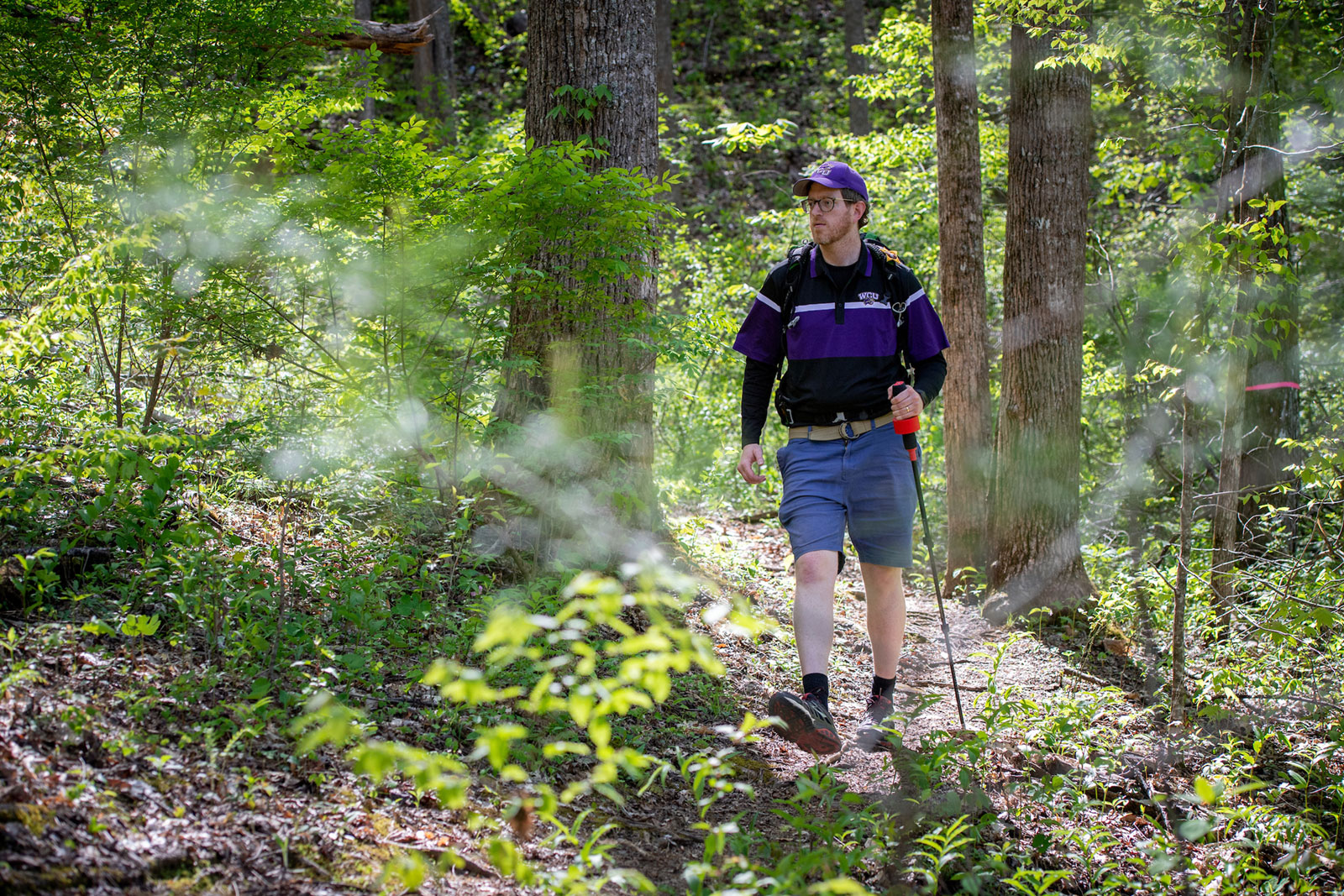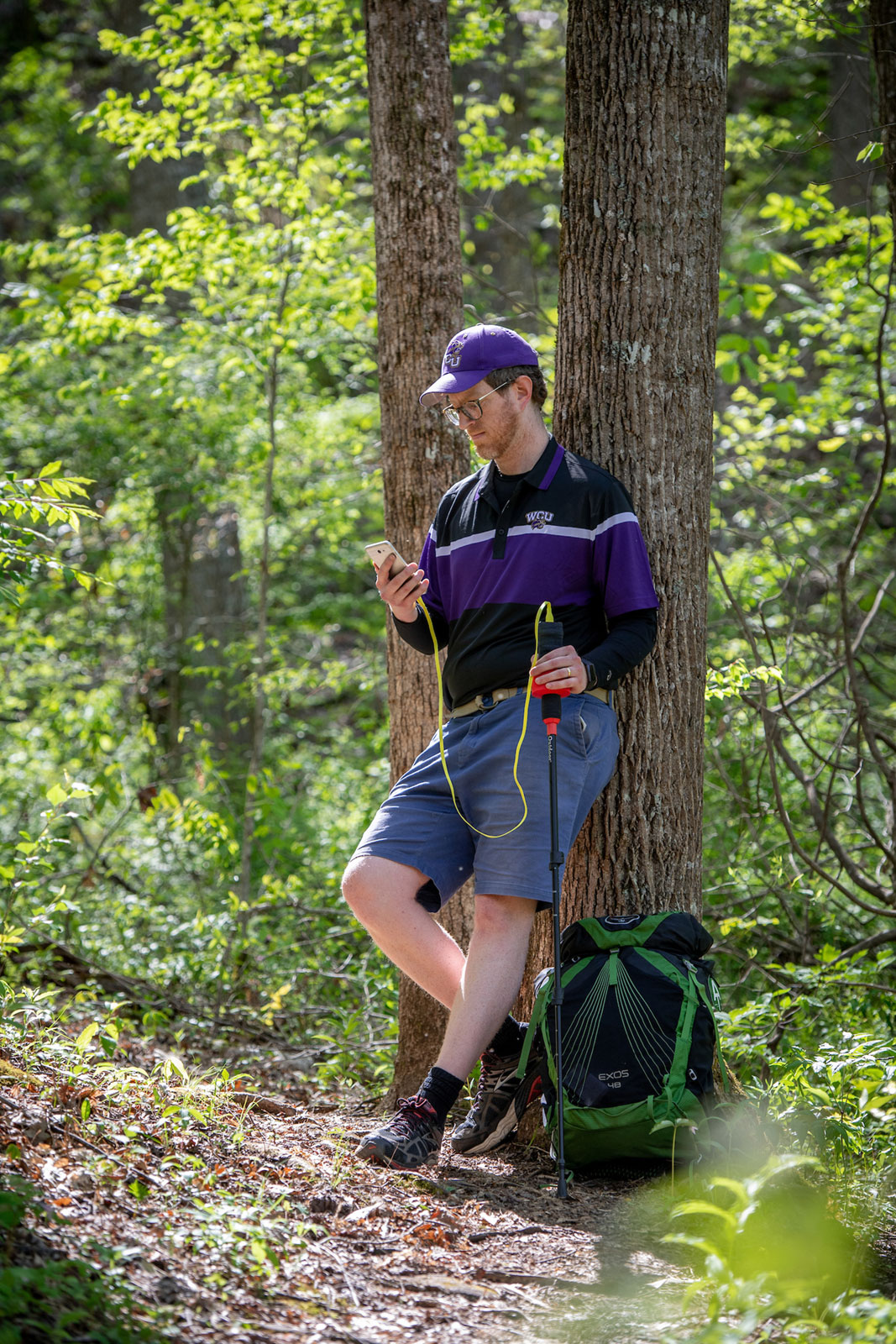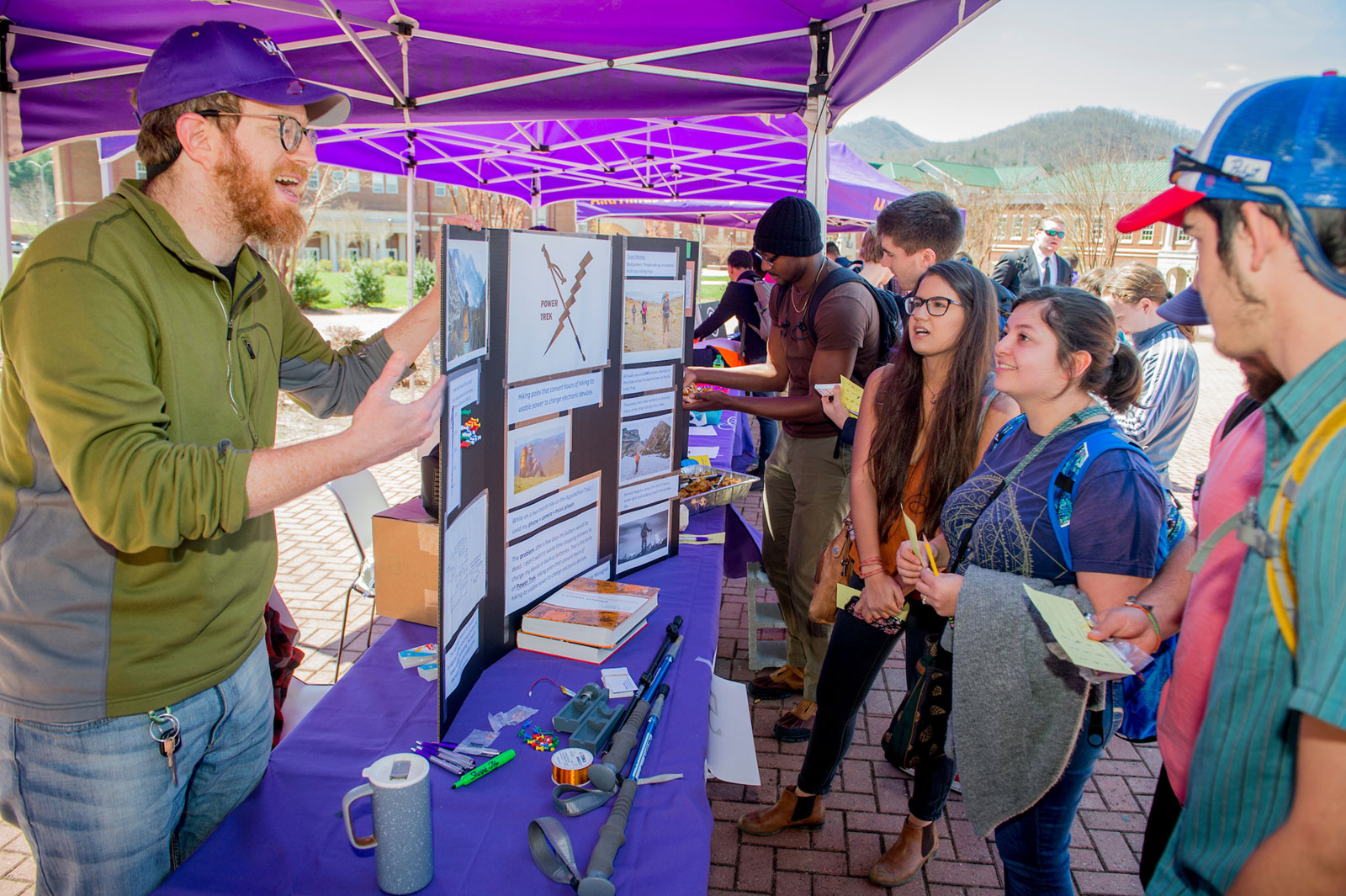- Admissions & Aid
- Decide to Succeed
- Stories
- Engineering students' ingenuity leads to a trekking pole for the digital age
Engineering students' ingenuity leads to a trekking pole for the digital age

Almost as ubiquitous as hiking boots is a hiking stick, an age-old means to steady a climb, keep one’s balance, push aside brush and ease a descent. Now, add one more function: phone charger, thanks to the ingenuity of Western Carolina University engineering student Kyle Monaghan.
Kyle’s “Power Trek,” a hiking stick for the digital age, converts kinetic energy from the motion of walking into a battery-storable charge. A charge that can be used to juice up cellphones and other electronic devices while out on the trail and far away from electrical outlets.

Kyle may be on to something, a commercial blockbuster perhaps, based on the numerous awards he’s received for presentations featuring the prototype, awards that also help to fund prototype development efforts. While there are similar gadgets by others in various stages of availability, Kyle’s has its own unique characteristics and he is pursuing patent information.
Both the idea for the hiking stick and the decision to attend WCU came during a long-distance excursion on the Appalachian Trail. Already holding a bachelor’s degree in philosophy from Hunter College in New York City and living and working in Asheville, Kyle was considering what his next steps in life could be.
“I wasn’t sure what I wanted to do,” Kyle says. “I was just on the trail, giving myself time to think about things, and you want to be able to use your cell phone, to take pictures and send texts, and it’s nice for me to be in contact with my wife.
“I was talking to fellow hikers and one of the conversations I had on the trail was a through hiker telling me ‘what would you want to do with your life if you had no fear?’ I had always wanted to be an engineer, but the idea of going through three or four years of calculus and all the math and science behind it was terrifying to me. Then, I thought that is a poor reason not to do something, just because I’m scared of the hard work. At that time, I was getting up at six in the morning to hike 10 hours a day. So, I should be able to handle some school work.”
After completing about 800 miles on the Appalachian Trail, he decided to drop-off and return home to Asheville, where he began taking prerequisite courses at Asheville-Buncombe Technical Community College with plans to transfer into WCU’s College of Engineering and Technology.
Kyle quickly credits encouragement and guidance from his project adviser, Wes Stone, a WCU engineering associate professor.
“Kyle proposed his Power Trek idea for his Engineering Practices and Principles III course, a one-semester, junior-level product development course,” Stone says. “I was intrigued by the idea, and put Kyle and three other engineering students on the project. Four months later they had a functional prototype, generating a charge from the trekking motion. The device needed additional work, so Kyle spent part of his summer and early fall making modifications. By early October 2018, Kyle had a polished prototype and a business pitch that earned him first place at the Student Pitch Competition. I am proud of the effort he’s poured into the development of his Power Trek, and look forward to seeing it in the hands of hikers on the Appalachian Trail one day.”

At the recent Innovate Carolina Conference in Charlotte, hosted by Product Development Management Association, Kyle and his digital walking stick took first place in the undergraduate division, winning a $750 prize, prompting Jeffrey Ray, dean of WCU’s College of Engineering and Technology, to say it was another example of the high caliber of students reaching new heights at the university.
“I really enjoyed the idea of product-based learning, which we do here at Western,” Kyle says. “I’ve been provided with an amazing amount of resources, I have so much contact with my professors here. The encouragement I’ve received seeking my degree and the support for this product is amazing. Now I know I made some good decisions when I was hiking the AT.”
With a laugh, Kyle adds, “I’ve gone to other universities, so I can have a contrasting opinion about it.”

